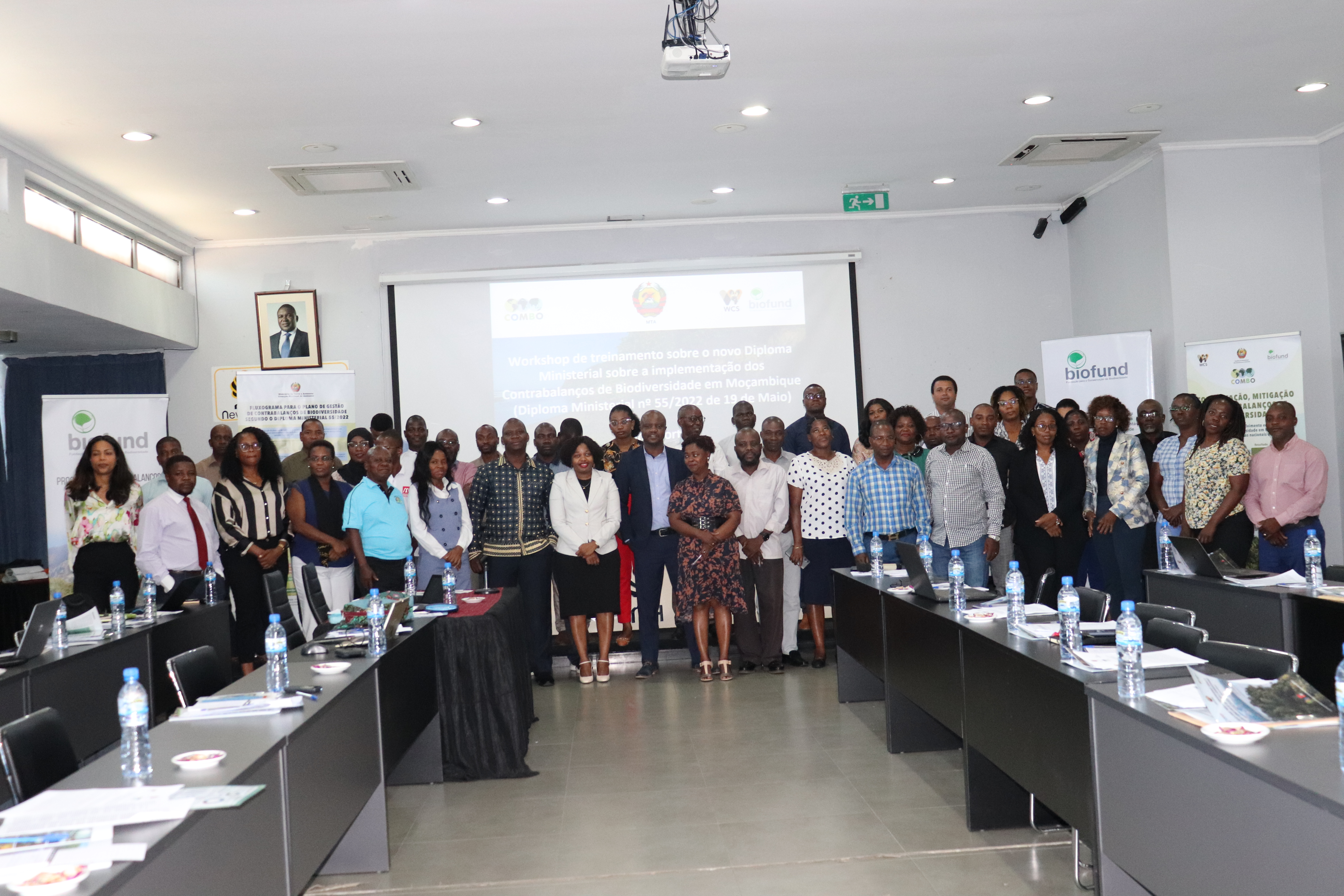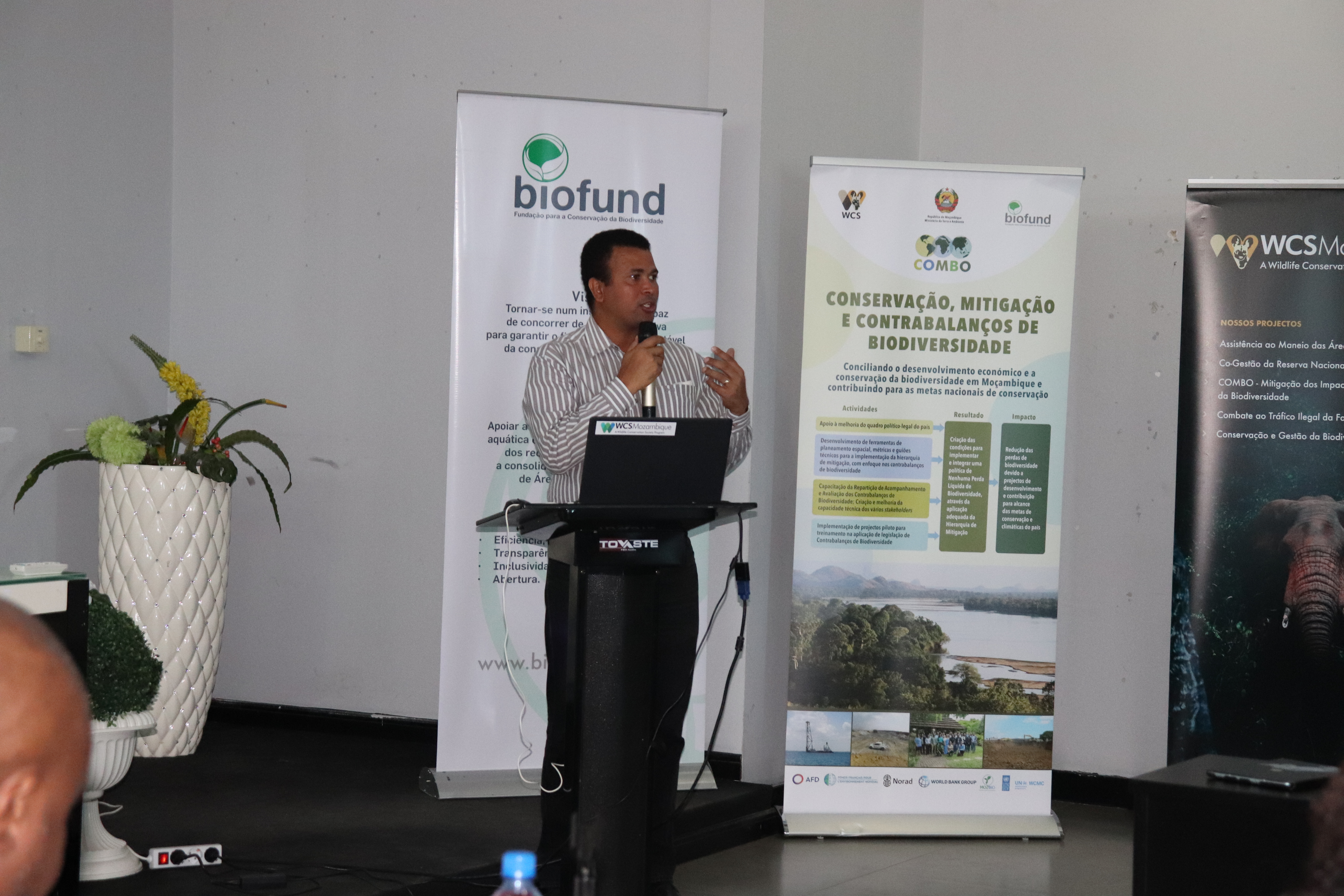The training of technicians from the Provincial Environment Services and Directorates and the Technical Commission for Environmental Impact Assessment from Zambézia and the north of the country on the new Ministerial Diploma for Biodiversity Offsets in Mozambique (Diploma 55/2022) took place on 25 and 26 October in the city of Nampula, in Nampula Province.
Biodiversity offsets are required by the Environmental Impact Assessment Regulation (Decree 54/2015) and recently regulated by the Biodiversity Offsets Directive (Ministerial Diploma No. 55/2022 of 19 May). The approval of this legal instrument, places Mozambique on the list of pioneer countries in Africa in the creation and consolidation of the legal framework for environmental impact assessment, promotion of the mitigation hierarchy and biodiversity offsets, as measures to harmonize economic development in the country.

The training was attended by 48 participants, including government technicians representing the National Directorate of Environment (DINAB), Provincial Environment Services (SPA), Provincial Services of Economic Activities (SPAE), Provincial Services of Infrastructure (SPI), Provincial Directorates of Industry and Commerce (DPIC), Provincial Directorate of Territorial Development and Environment (DPDTA), Provincial Directorate of Culture and Tourism (DPCT), Provincial Directorates of the National Agency for the Control of Environmental Quality (AQUA), BIOFUND and WCS.
This national training programme for government technicians and CTA members began in 2021 with initial modules in October and November, then in March 2022, entering a second phase from September, with training on 20 and 21 in Maputo City, 11 and 12 October in Beira City and, finally, between 25 and 26 October in Nampula City, thus covering technicians from the environment sector and the Technical Assessment Commission from all over the country.

This initiative is led by the National Directorate of Environment (DINAB) with the support of the COMBO+ Programme (partnership between the Government of Mozambique, WCS and BIOFUND) and with funding from AFD/FFEM, World Bank/ MozBio 2 Project and UNDP/BIOFAC Project.